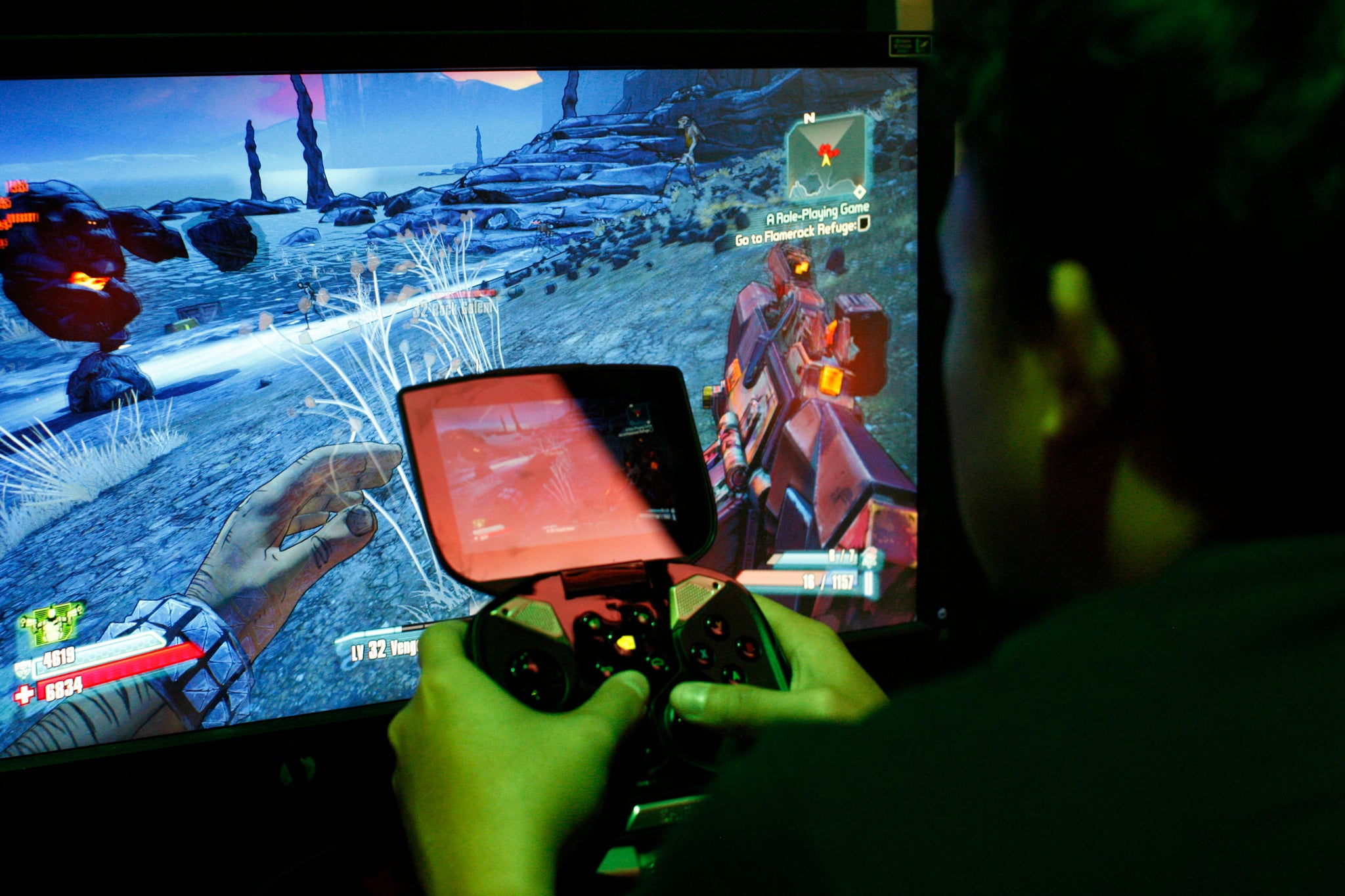Video games 'more damaging to GCSE grades' than Facebook and Twitter
Fewer than half of children who used gaming devices twice a day achieve five good grades

Your support helps us to tell the story
From reproductive rights to climate change to Big Tech, The Independent is on the ground when the story is developing. Whether it's investigating the financials of Elon Musk's pro-Trump PAC or producing our latest documentary, 'The A Word', which shines a light on the American women fighting for reproductive rights, we know how important it is to parse out the facts from the messaging.
At such a critical moment in US history, we need reporters on the ground. Your donation allows us to keep sending journalists to speak to both sides of the story.
The Independent is trusted by Americans across the entire political spectrum. And unlike many other quality news outlets, we choose not to lock Americans out of our reporting and analysis with paywalls. We believe quality journalism should be available to everyone, paid for by those who can afford it.
Your support makes all the difference.Frequently playing video games undermines a child's GCSE performance, a Northern Ireland study has found.
Just under half of children who used gaming devices twice a day achieved five good grades compared to three-quarters of those who played rarely, the survey of almost 1,000 pupils showed.
But no link was found between use of social media and exam performance, a report funded by the Office of the First Minister and Deputy First Minister (OFMDFM) said.
Celine McStravick, director of the National Children's Bureau (NCB) charity in Northern Ireland, said: "We need parents and carers to step in and limit excessive amounts of time spent gaming."
The research, published by the NCB, was the first long-term study in Northern Ireland of how a child's use of information and communication technology (ICT) impacts on GCSE attainment.
Four in 10 pupils spent four or more hours online, the research found.
Much of the computer use was recreational, with 43% of pupils spending less than an hour using one for homework.
The ICT and Me study of 14 to 16-year-olds said 41% of children who used gaming devices twice a day achieved five good GCSEs compared to 77% of those who played rarely.
Ms McStravick added: "Young people are often so confident in their use of new technology that we can forget they need our support to establish good habits.
"Our research shows that using a computer for homework can help pupils consolidate learning and do better in exams, so schools should be regularly setting homework that requires the use of a computer and the internet.
"If we support parents and schools to get this right, young people will reap the benefits of using digital technology while sidestepping the pitfalls."
Pupils who spent around three hours every day using a computer to do homework achieved the best exam results, with 79% achieving five A* to C grades in their GCSEs.
But those who spent no time on homework or who spent more than three hours on homework, did considerably worse, with only 57% getting five good grades.
Press Association
Join our commenting forum
Join thought-provoking conversations, follow other Independent readers and see their replies
Comments